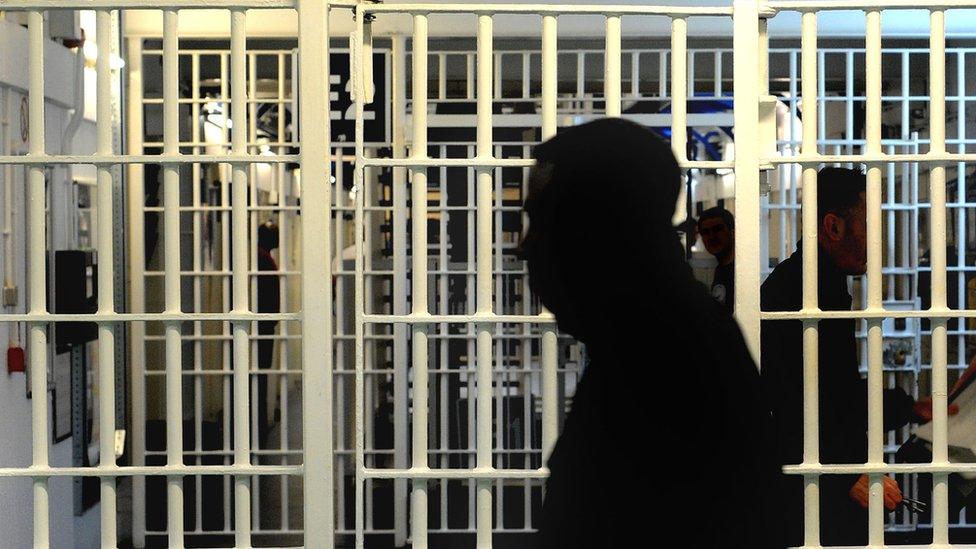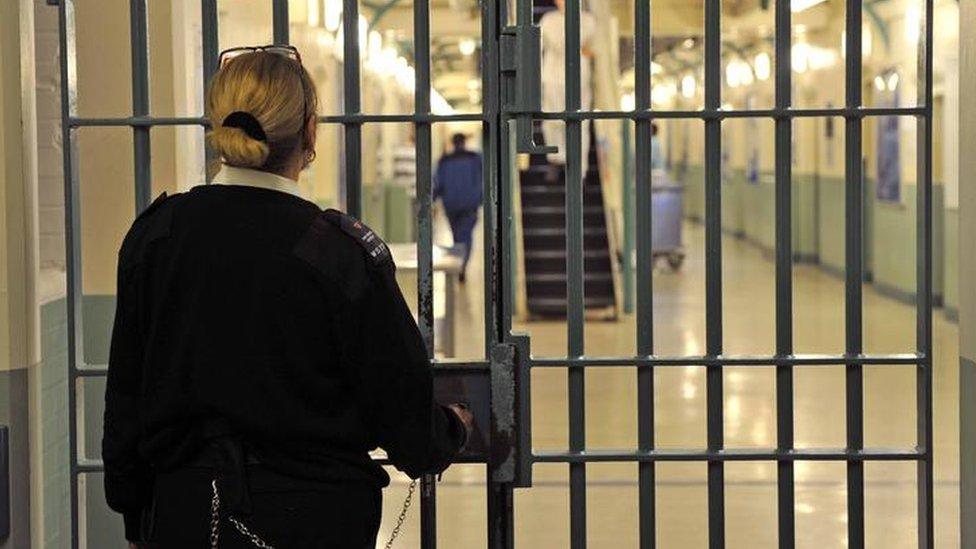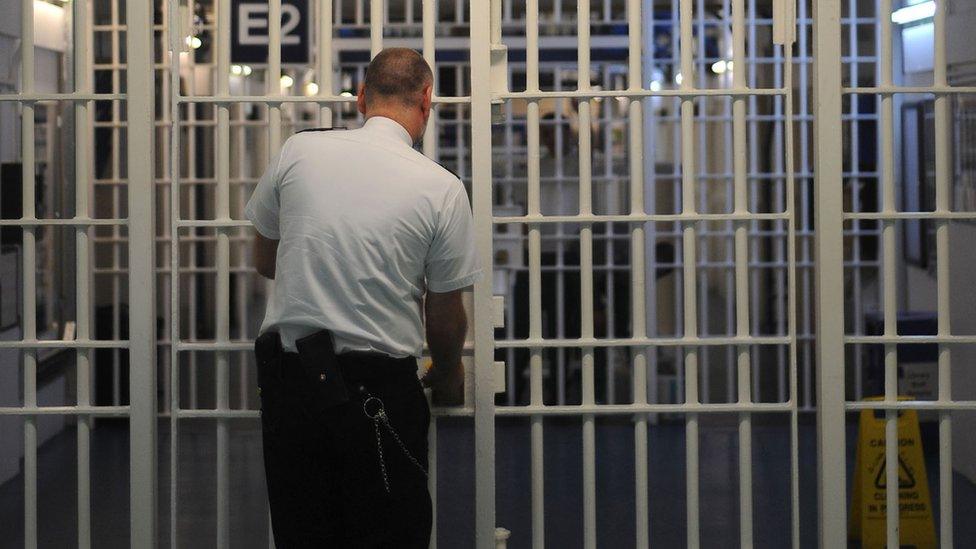Prisoners 'eat meals near cell toilets', inspectors say
- Published

The HM Inspectorate of Prisons report said the quantity and quality of food in prisons was "insufficient"
Some prisoners in England and Wales are forced to eat meals in their cells near toilets because of a lack of staff and dining facilities, inspectors say.
The HM Inspectorate of Prisons report, external quoted one inmate who said some "sit on their toilet as a seat to eat".
It also found that the quantity and quality of the food was "insufficient".
The Prison Service said all prisoners are provided with three healthy meals a day which meet government and Food Standards Agency guidelines.
Jails are allowed to spend £2 per inmate per day on food, the report said, which is almost five times less than the budget for hospital patients.
"Poor nutritional provision" could affect prisoners' wellbeing, and more could be done to improve standards, it added.
'Cramped conditions'
The inspectorate said "prisoners' ability to eat communally varied across the prison estate".
In some institutions, inspectors found inmates had to return to their cells to eat after collecting their food "due to staffing shortages, or simply because of an absence of dining facilities in communal areas".
"Some of these prisoners were being accommodated with another prisoner in a cell designed to hold one," they said.
"This meant eating in cramped conditions, near often inadequately screened toilets."
According to one prisoner, quoted in the report, some inmates "sit on their toilet as a seat to eat".
"This is degrading and totally unhygienic," the prisoner said.

Despite budget constraints, more could be done to improve food variety and hygiene, the report said
The report said breakfast in prison was usually a pack, delivered to prisoners the night before, containing cereal, milk, whitener and tea or coffee sachets.
It said: "We considered the quality and quantity of these breakfast packs to be inadequate on their own."
However, inspectors pointed out that a cooked breakfast was served at one institution, North Sea Camp open prison in Lincolnshire, which "prisoners appreciated".
Lunch consisted of a sandwich, wrap or portion of pasta, served with a piece of fruit, crisps or biscuits.
Typical dinners included a choice of curry, pie, baked fish or casserole, accompanied by rice, vegetables, potatoes, and a choice of dessert or fruit.
The inspection report said only 29% of prisoners they surveyed described the food as "good" or "very good".
'Not edible'
Among comments by inmates, one said: "It's all chips or potatoes."
Another described the food as "half cooked and not edible".
The inspectors made four recommendations, saying that the National Offender Management Service (NOMS) should ensure that:
the conditions under which food is eaten and minimal specific nutritional values are set out.
prisoners can eat out of their cells communally.
governors place greater emphasis on providing opportunities for self-catering, particularly for long-term prisoners.
governors arrange meal times to reflect what is considered the norm in the community.
The small size of portions for young offenders was criticised, as were the arrangements for vulnerable prisoners - such as sex offenders - whose food was at risk of being contaminated by other inmates.
Inspectors said they were concerned about a series of cases at High Down Prison in Surrey.
"Staff and managers told us of a number of incidents in which food for vulnerable prisoners in house block six had been tampered with and contaminated with items such as nails, drawing pins and cigarette ends," the report said.
- Published7 September 2016
